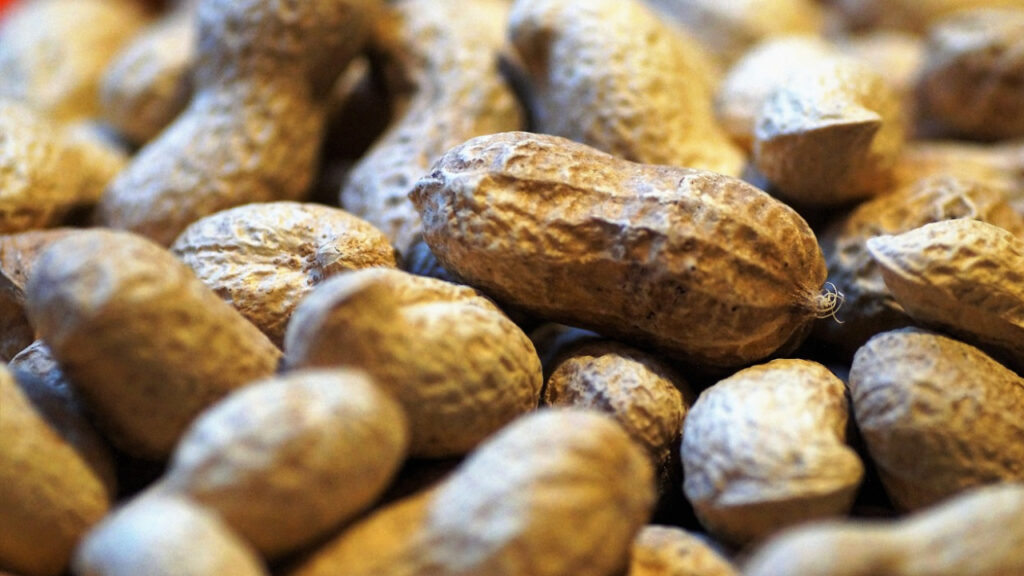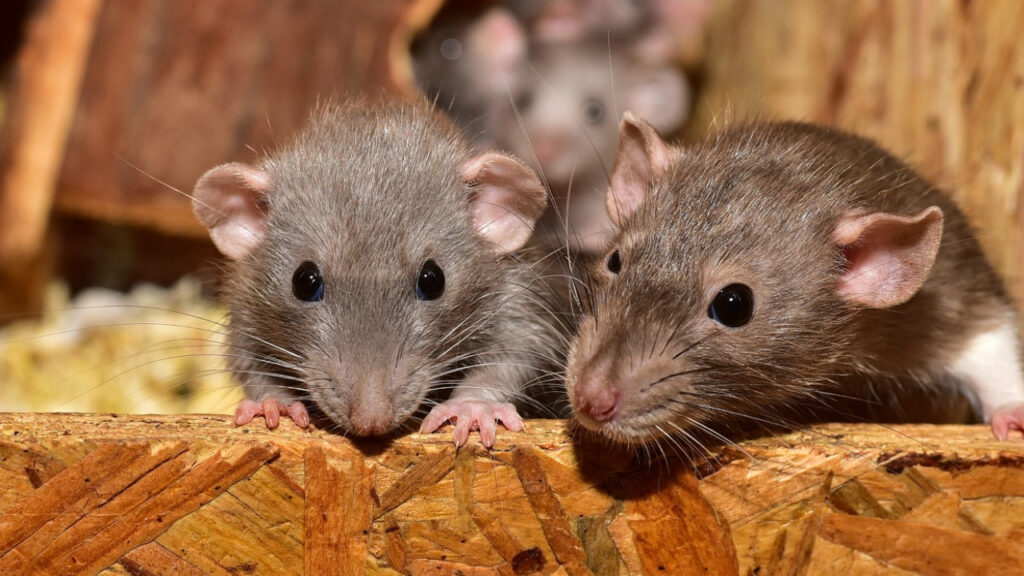
A peanut is a legume that belongs to the Fabaceae family. The peanut plant produces underground pods that contain edible seeds, commonly referred to as peanuts. Peanuts are widely consumed by humans and are a popular snack.
But can rats eat peanuts too?
Yes, rats can eat peanuts, and they often enjoy them. Peanuts can be a good source of protein, healthy fats, vitamins, and minerals for rats. However, it’s essential to offer peanuts in moderation as part of a balanced diet. While they provide valuable nutrients, peanuts are also calorie-dense, and excessive consumption can lead to obesity in rats.
So, should you feed peanuts to your rats?
Let’s find out!
Table of Contents
Can Rats Eat Peanuts?
Are wondering if it’s okay to share some peanuts with your rats?
Well, the good news is that rats can eat peanuts, but there are a few things you need to keep in mind.
Peanuts are tasty, and rats usually enjoy them, but you should give them in moderation. Too many peanuts can be a bit heavy on their little tummies and might not be the healthiest snack if they eat too much. Just like you wouldn’t eat a whole bag of candy at once, it’s good for rats to have a balanced diet.
Also, make sure the peanuts are unsalted and without any added flavors. Salt and extra stuff can be not so great for rats.
And it’s really important to avoid giving them any flavored or seasoned peanuts because some of those flavors might not be good for them.
Also Read: Can Rats Eat Pistachios?
Can Rats Eat Peanuts with the Shell?
No!
The shell is like the wrapping paper, and the peanut inside is the gift.
Now, rats can technically eat peanuts with the shell, but it’s generally better to take the shell off before giving it to them. Why? Well, the shell is a bit tough for their tiny teeth to chew through, and it might not be as easy for their tummies to digest.

Imagine trying to eat a chocolate bar with the wrapper still on—it’s not so fun, right? So, if you take the shell off, it’s like unwrapping the present and making it much easier and safer for your rat to enjoy the tasty peanut inside.
So, it’s better to be a good friend to your rat and take off the shell before sharing the peanuts. That way, they get to enjoy the yummy part without any extra work or tummy troubles!
Is Peanuts Healthy for Rats?
Peanuts can be a healthy and nutritious treat for rats when given in moderation.
A typical serving of peanuts (1 ounce/28 g) contains:
- Calories: Approximately 161 kcal
- Protein: About 7 grams
- Fat: Around 14 grams
- Carbohydrates: Approximately 4 grams
- Fiber: Roughly 2 grams
- Sugar: Around 1 gram
Other health benefits of peanuts may include:
Protein Source
Peanuts are a good source of protein, which is essential for the growth and maintenance of muscle tissues in rats.
Healthy Fats
Peanuts contain monounsaturated and polyunsaturated fats, which can contribute to a rat’s overall health by providing a source of energy.
Vitamins and Minerals
Peanuts contain various vitamins and minerals, including vitamin E, niacin, folate, phosphorus, magnesium, and manganese, which contribute to the overall well-being of rats.
Antioxidants
Peanuts contain antioxidants, such as resveratrol, which may have protective effects on cells and tissues.
Energy Boost
The fats and carbohydrates in peanuts can provide a quick energy boost for rats, especially if they are active and playful.
Note – While peanuts can be a healthy addition to a rat’s diet, it’s crucial to offer them in moderation. Too many peanuts can lead to obesity and other health issues.
Risks of Overfeeding Peanuts to Rats
Overfeeding peanuts or any high-fat treats to rats can pose several risks to their health.
While peanuts can be a tasty and nutritious addition to their diet in moderation, excessive consumption can lead to various issues.
Here are some risks of overfeeding peanuts to rats:
Obesity
Peanuts are rich in fats, and overeating them can contribute to weight gain in rats.
Obesity in rats can lead to a range of health problems, including joint issues, respiratory difficulties, and a shorter lifespan.
Digestive Problems
Too many peanuts can cause digestive problems for rats.
The high fat content can be difficult for their digestive systems to handle, leading to diarrhea or stomach upset.
Kidney Issues
Excessive salt intake, which can be present in salted peanuts, can strain a rat’s kidneys.
This can lead to kidney problems over time, affecting their overall health.
Dental Problems
While not specific to peanuts, overfeeding any high-fat treats may contribute to dental issues in rats. Rats’ teeth continuously grow, and a diet too high in fats can lead to obesity-related problems, including difficulty in maintaining proper dental health.
So, it’s crucial to offer peanuts and other treats in moderation.
A balanced diet that includes a variety of foods, along with appropriate rat pellets or blocks, is essential for their overall health.
How Many Peanuts Can Rats Have?
Rats are small creatures, so they don’t need a ton of peanuts.
As a general rule, it’s a good idea to keep treats like peanuts to a small amount – like just a few at a time. You can think of it as a little snack, not a whole meal.

A good starting point is to offer them one or two peanuts, and see how they like it.
If they enjoy it and you want to give them more, you can do so occasionally, but don’t make it an everyday thing.
Too many peanuts can be a bit heavy for their tiny bodies and might not be the healthiest choice.
Remember, variety is the spice of life, even for rats!
So, while they can enjoy a peanut treat now and then, it’s essential to include a mix of different foods to keep them happy and healthy.
Are Rats Allergic to Peanuts?
Just like some people can be allergic to certain foods, rats can also have allergies, but it’s not very common.
However, it’s essential to know that while rats can eat peanuts, there’s always a small chance that an individual rat might be allergic.
Allergies happen when the body reacts to something it doesn’t like, and symptoms can vary.
Some of the allergic signs include:
- Itching
- Redness
- Sneezing
If you’ve never given your rat peanuts before and you’re curious, it’s a good idea to introduce them slowly in small amounts and keep an eye on your furry friend.
If you notice any unusual behavior or signs of discomfort after giving your rat peanuts, it’s best to stop and consult with a vet.
Can Rats Eat Peanut Butter?
Yes, rats can eat peanut butter, and most of them really like it!
However, there are a couple of things to keep in mind.
When you’re sharing peanut butter with your rat, make sure it’s plain, unsalted, and doesn’t have any added sugar or artificial sweeteners. You want the pure, natural peanut butter without the extra stuff.
Now, when giving your rat peanut butter, it’s important to offer it in moderation. Peanut butter is quite rich, and a little goes a long way for your small, furry friend. You can spread a thin layer on a small piece of bread or offer it on a spoon for them to enjoy.
Also, make sure the peanut butter doesn’t have any chunks or pieces that could be a choking hazard.
Thus, yes, rats can have peanut butter, but keep it plain, in moderation, and ensure it’s a safe consistency. It can be a yummy treat for your rat pals!
Can Rats Eat Dry Roasted Peanuts?
Similarly, rats can eat dry roasted peanuts too.
However, there are a few things to keep in mind.
Dry roasted peanuts are usually fine for rats as an occasional treat, but remember moderation is key. Rats are small, and these peanuts can be a bit on the salty side, which may not be the healthiest in large amounts.
Always make sure the dry roasted peanuts are unsalted. Too much salt is not great for your furry friend, just like too much salt isn’t great for you.
Also, keep in mind that while rats can enjoy the crunchiness of dry roasted peanuts, it’s always good to offer them a balanced diet with a variety of foods. Don’t let the peanuts replace their regular meals.
What About Salted Peanuts?
It’s generally not recommended to give rats salted peanuts.
Rats are quite small, and their bodies are sensitive to high salt content. Too much salt can lead to health issues, including dehydration and kidney problems.
Salted peanuts, as the name suggests, contain added salt, which can be harmful to rats in excess. High salt intake can disrupt their delicate balance of hydration and electrolytes.
If you want to treat your rats to peanuts, it’s best to choose unsalted varieties.
This way, you can provide them with a tasty snack without the potential negative effects of excess salt.
Always remember, moderation is key when it comes to treats, even if they are unsalted.
Alternatives to Peanuts for Rats
Rats can enjoy a variety of nuts as part of their diet, but it’s important to offer them in moderation due to their high fat content.
Here are some rat-friendly nut alternatives you can consider:
- Almonds: Almonds are a good source of protein and healthy fats. Make sure to offer them unsalted and in moderation.
- Walnuts: Walnuts contain omega-3 fatty acids, which can be beneficial for your rat’s health. Offer them in small amounts.
- Hazelnuts: Hazelnuts are another option, but like other nuts, offer them sparingly.
- Cashews: Cashews are lower in fat compared to some other nuts. Provide them unsalted and in moderation.
- Pistachios: Rats can eat pistachios, but it’s important to offer them in moderation due to their higher fat content.
Always ensure that the nuts are unsalted and without any added flavors or seasonings.
Nuts are rich in fat, so while they can be a tasty treat, it’s crucial not to overdo it.
Final Thoughts
To sum up, rats can indeed eat peanuts, and for many of them, it’s a tasty treat they’ll likely enjoy.
Whether you offer plain, unsalted peanuts or a bit of peanut butter, it can be a delightful addition to their diet when given in moderation.
However, it’s crucial to be mindful of a few things.
Avoid salted peanuts, as too much salt can be harmful to your rat’s health. Additionally, while peanuts are fine as an occasional treat, they shouldn’t replace the main components of their diet. Rats benefit from a balanced mix of fruits, vegetables, and a quality rat pellet or block.Top of Form
Before you leave, here are more helpful articles:
